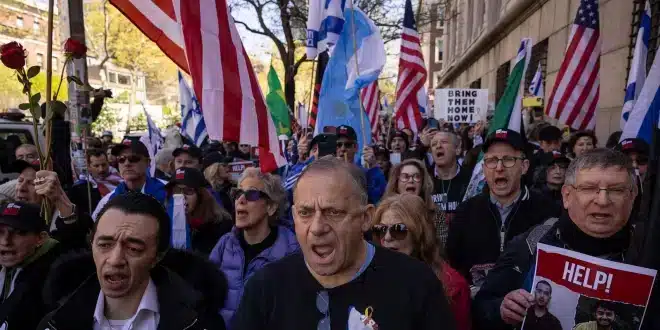Student protests against the Israel-Hamas conflict have escalated at U.S. universities, leading to confrontations with law enforcement. Amidst this backdrop, Columbia University’s Senate created a task force to scrutinize administrative decisions, particularly after police were called to disperse a pro-Palestinian student encampment, resulting in over 100 arrests. The university delayed the encampment’s removal several times, suggesting in an email that reintroducing police would hinder ongoing negotiations.
Nationally, protesters are urging universities to sever financial ties with Israel and divest from companies implicated in the conflict. However, some Jewish students have expressed concerns that the protests have crossed into antisemitism, making them feel unsafe on campus.
The response to bring in law enforcement has led to hundreds of arrests across the country and prompted votes of no confidence in university leaders by faculties in California, Georgia, and Texas. These votes are symbolic and do not have the power to dismiss university presidents but signify growing dissatisfaction among faculty.
At California State Polytechnic University, Humboldt, a deadline was set for protesters barricaded inside a building to leave without facing immediate arrest, but it was largely ignored.
In Colorado, about 40 protesters were arrested for trespassing after police cleared an encampment at Denver’s Auraria Campus.
At Columbia, negotiations stalled without meeting protesters’ primary demand of divestment from companies associated with the conflict, although progress was made towards more transparent financial disclosures.
Columbia’s President Minouche Shafik retained trustee support despite faculty criticism of her handling of the protests, including the use of police and the suspension of student protest groups.
Amid these tensions, Columbia student protester Khymani James retracted controversial statements made in a video, affirming the importance of community safety.
These university protests have led to numerous arrests, including at Indiana University, Bloomington, Ohio State University, and the University of Connecticut. The University of Southern California canceled its main graduation ceremony following arrests but will still hold individual school ceremonies.
Faculty at several universities, including Cal Poly Humboldt, University of Texas at Austin, and Emory University, have either initiated or passed votes of no confidence against their presidents, underscoring the widespread impact of the protests on university governance.


